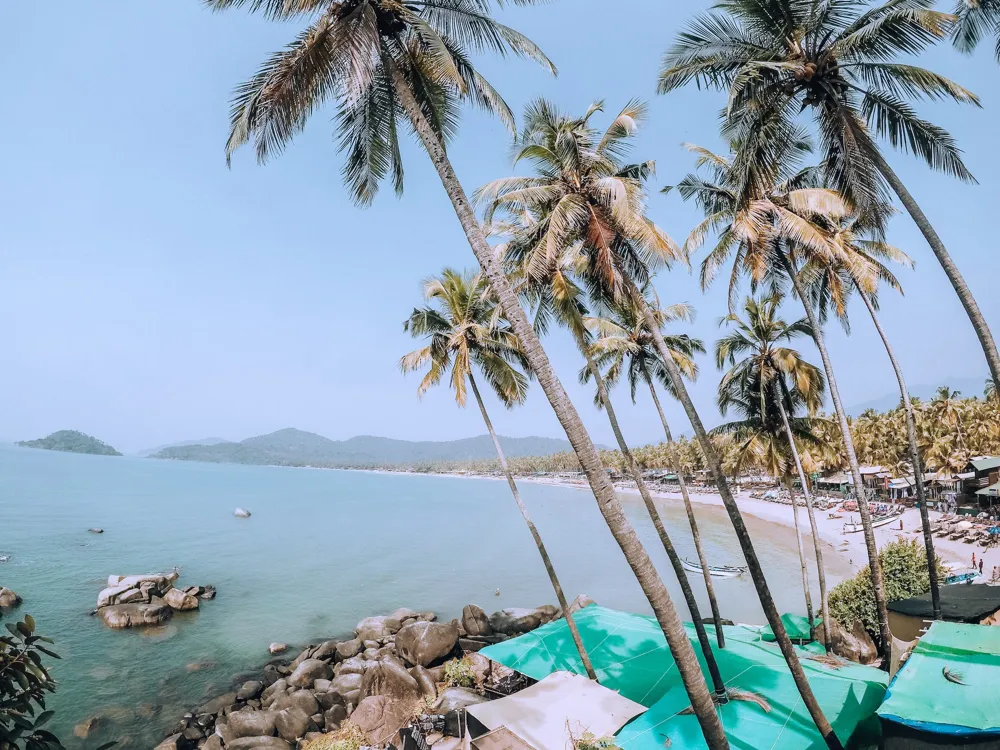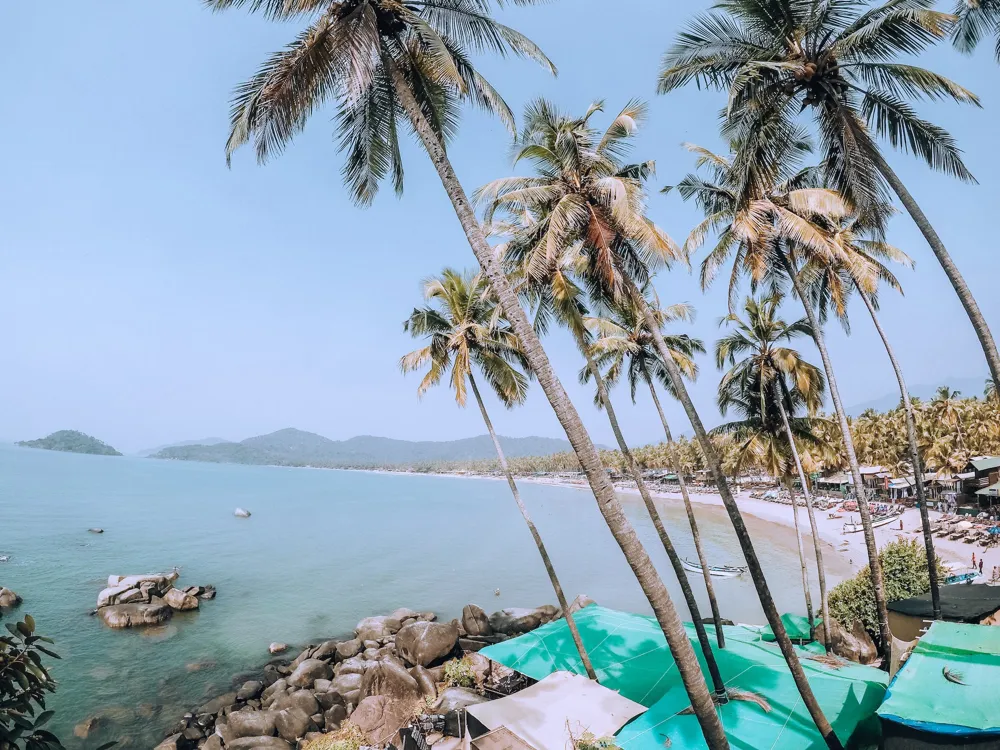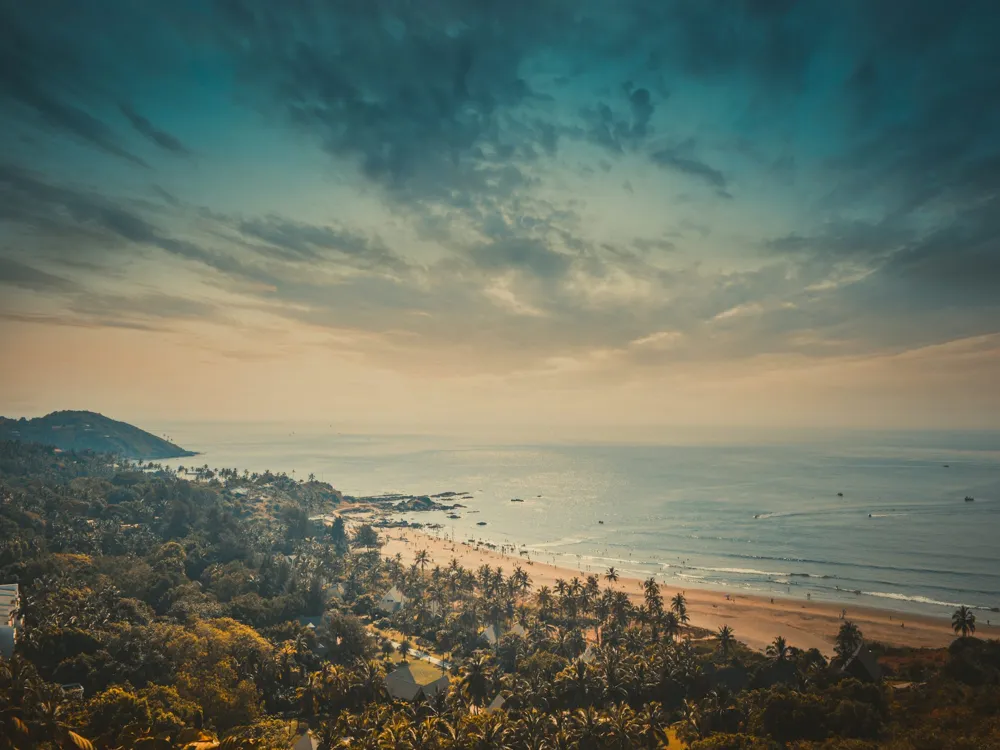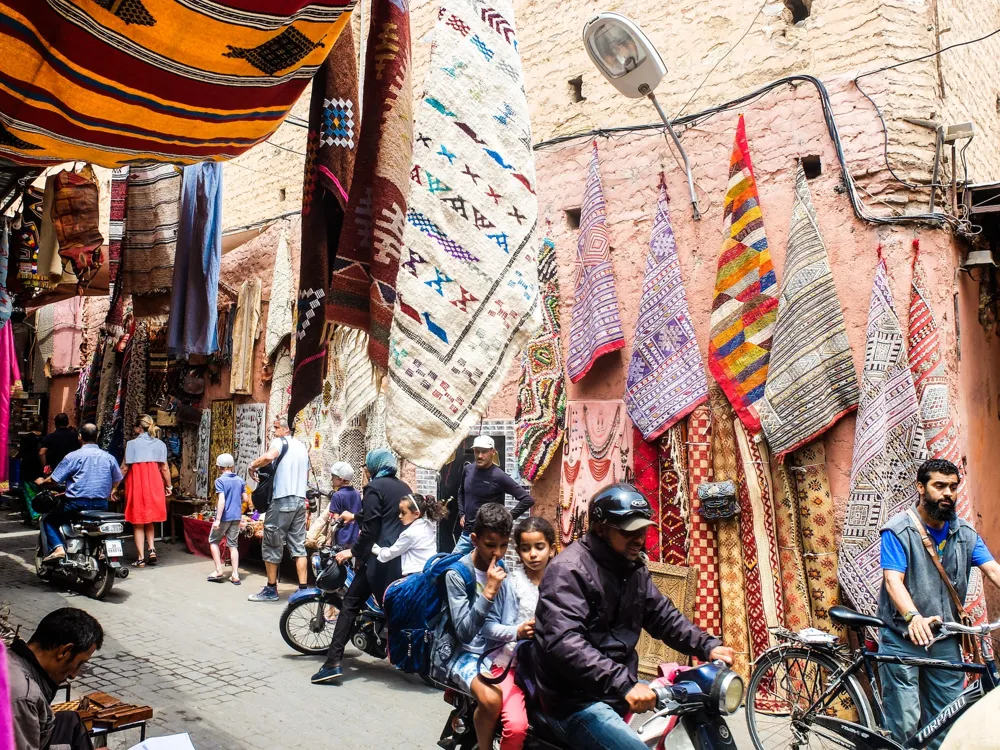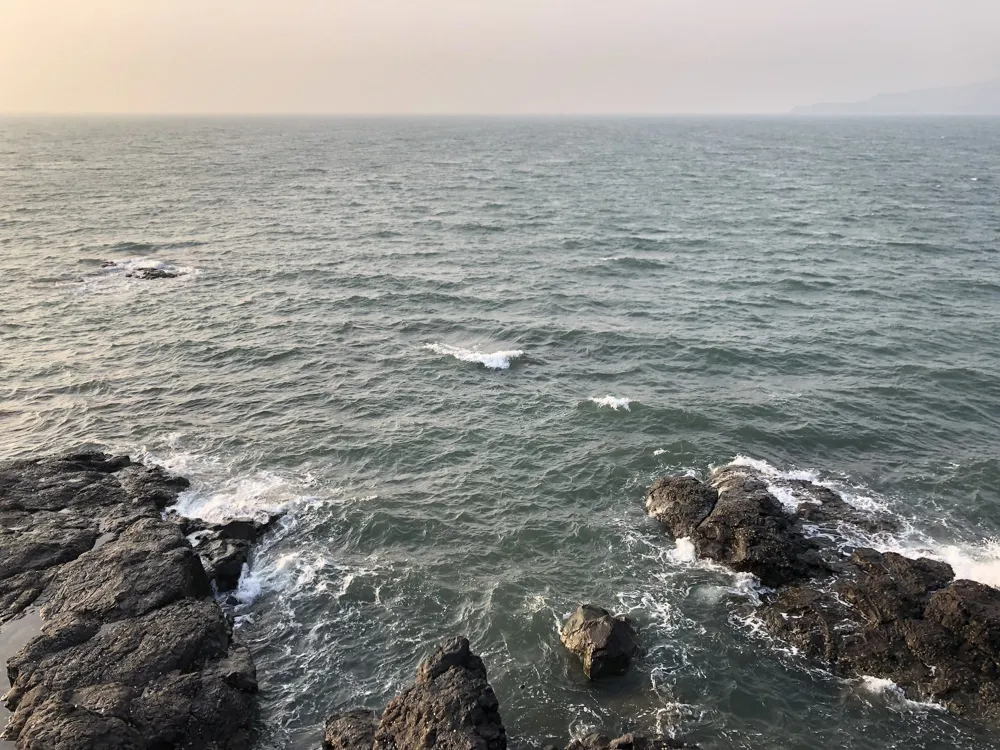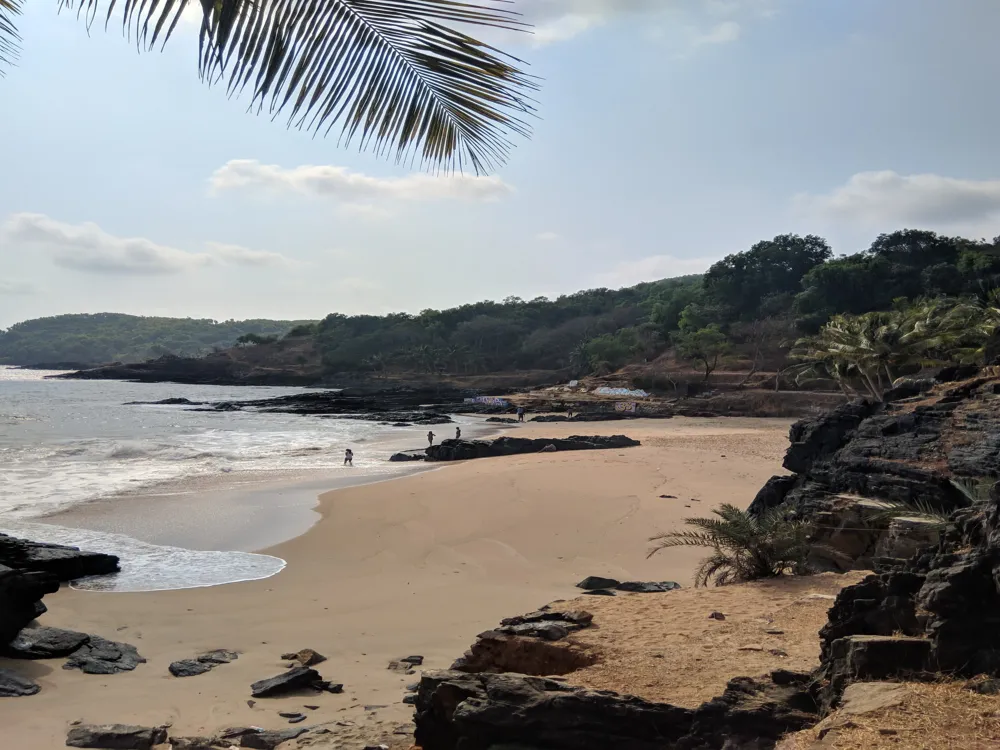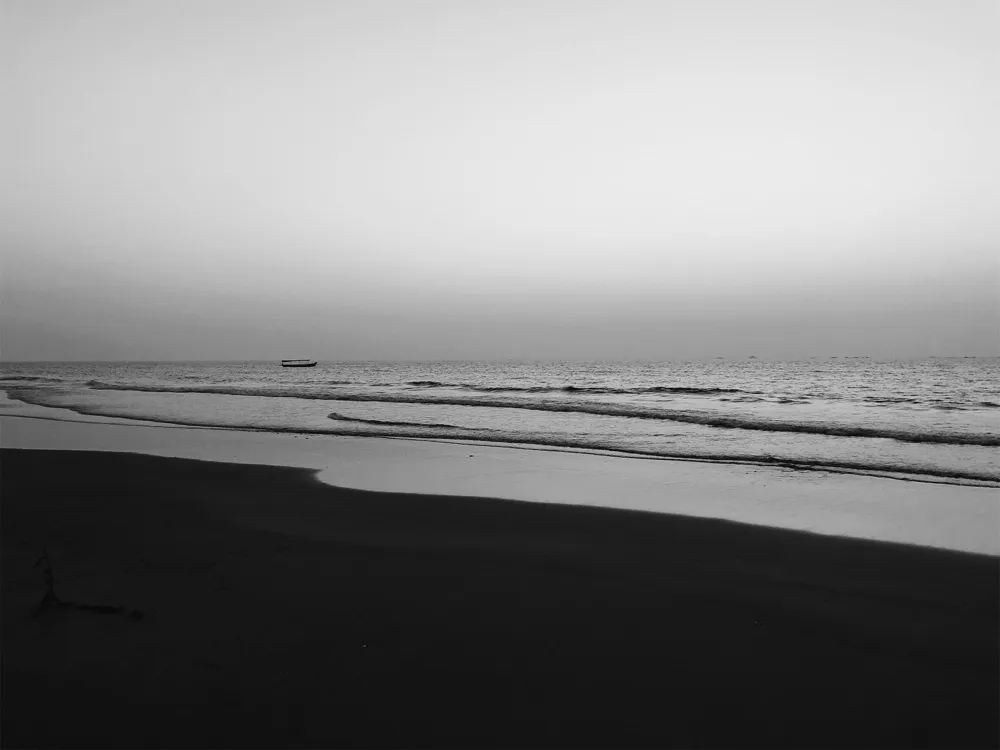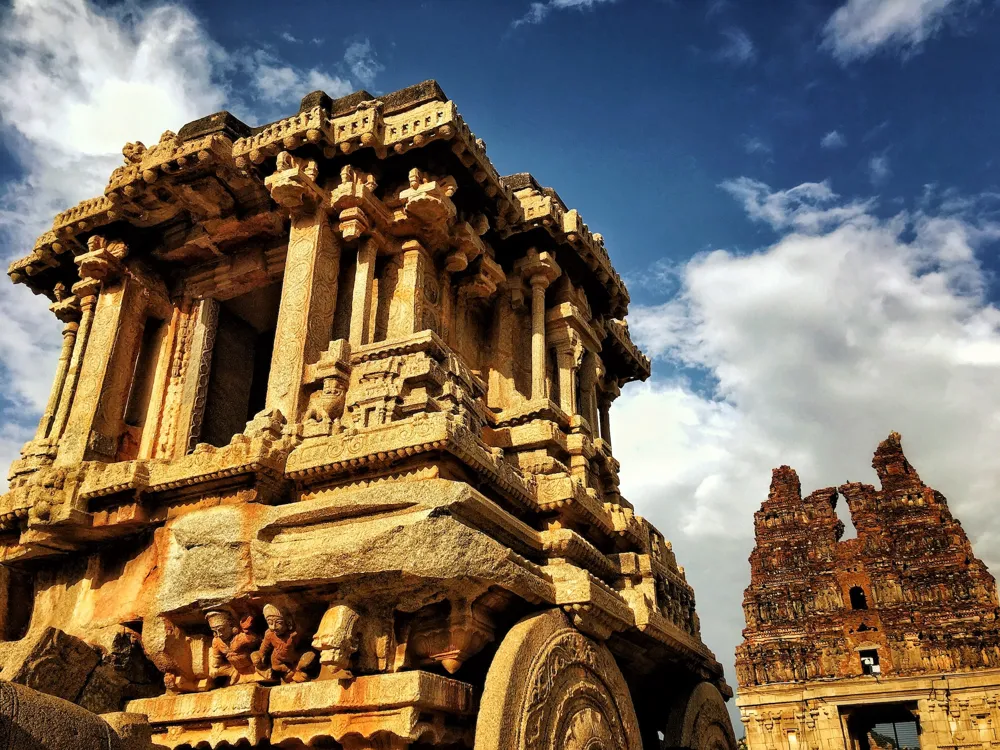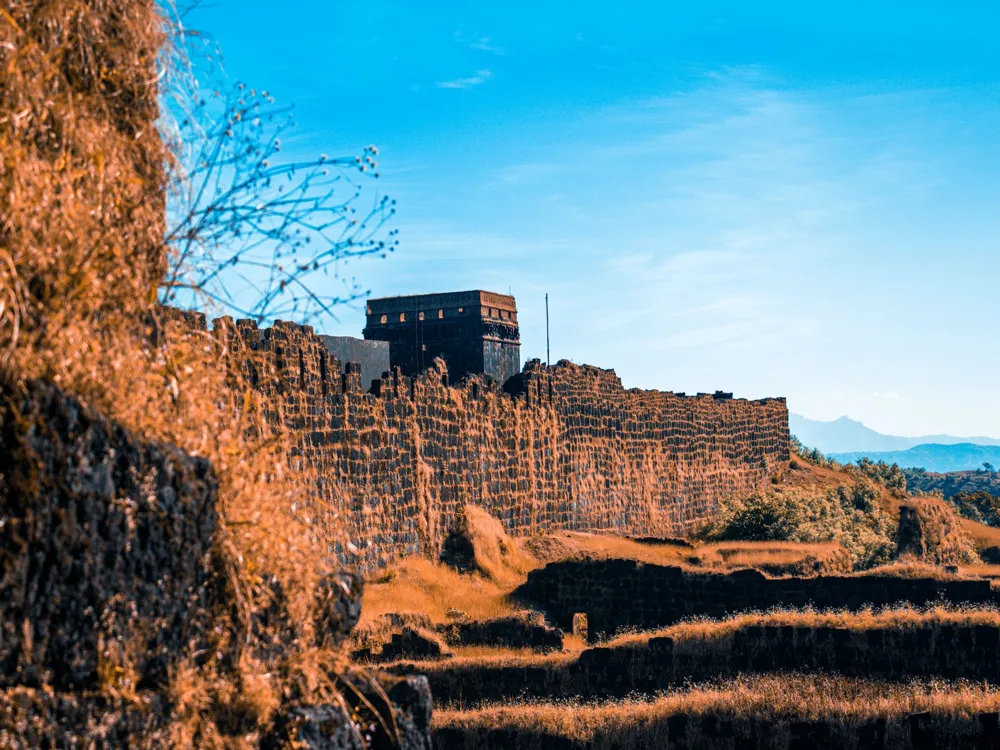Morjim Beach, located in the northern part of Goa, is a tranquil haven for tourists seeking a peaceful retreat from their hectic lives. Known as the 'Turtle Beach', Morjim is renowned for being a nesting ground for the endangered Olive Ridley Sea Turtle. The beach stretches across the northern bank of the Chapora River estuary and is enveloped by lush greenery, contributing to its serene ambiance. The soft, sandy shoreline is perfect for long, leisurely walks, while the gentle waves create an ideal setting for swimming and water sports. Apart from its natural beauty, Morjim Beach is steeped in a rich cultural history. It's a melting pot of traditional Goan lifestyle and modern tourist amenities, offering a unique experience to its visitors. The beach is less commercialized compared to other beaches in Goa, which helps maintain its pristine condition and tranquil atmosphere. The local cuisine, characterized by a rich blend of Portuguese and Indian flavors, is a delight for food enthusiasts. The beach also hosts a variety of beach shacks, offering fresh seafood and local delicacies, coupled with stunning views of the Arabian Sea. The architecture around Morjim Beach is a harmonious blend of traditional Goan and modern designs. The area is dotted with beautiful Portuguese-style houses, characterized by their stunning white facades, colorful window frames, and terracotta-tiled roofs. These houses are often surrounded by lush gardens and palm trees, adding to the scenic beauty of the region. In recent years, there has been a rise in contemporary architecture around Morjim Beach, with the construction of luxury resorts, villas, and boutique hotels. These structures are designed to offer maximum comfort while blending seamlessly with the natural surroundings. Eco-friendly materials and sustainable practices are increasingly being used in construction to preserve the natural beauty and ecological balance of the area. The result is an architectural landscape that is both diverse and harmonious, reflecting the spirit of Morjim Beach. The ideal time to visit Morjim Beach is from November to February. During these months, the weather is pleasant, with cooler temperatures and minimal rainfall, making it perfect for beach activities and exploration. As a nesting ground for the Olive Ridley Sea Turtles, it's crucial to respect the wildlife. Avoid disturbing the turtles and adhere to guidelines set by wildlife conservation authorities. Morjim offers a range of accommodation options, from luxury resorts to budget-friendly guesthouses. Booking in advance is recommended, especially during the peak tourist season. Don't miss out on trying the local Goan cuisine, especially the seafood. The beach shacks and local eateries offer a variety of dishes that reflect the rich culinary heritage of the region. Morjim Beach is easily accessible by various modes of transportation. The nearest airport is the Goa International Airport, which is about 50 kilometers away. From the airport, one can hire taxis or use public transport to reach Morjim. For those traveling by train, the nearest railway stations are Thivim and Pernem, from where taxis or buses can be taken to reach the beach. Additionally, Morjim is well-connected by road, and self-drive is a great option to explore the scenic beauty of Goa en route to the beach. Read More: Morjim Beach, North Goa: A Serene Escape
Architecture of Morjim Beach: A Blend of Nature and Culture
Tips When Visiting Morjim Beach
Best Time to Visit
Respecting Wildlife
Accommodation Options
Local Cuisine
How To Reach Morjim Beach
Morjim Beach
North Goa
Goa
NaN onwards
View goa Packages
Weather :
Label : Must Visit
Tags : Beach
Entry Fee : No entry fee
Tips :
- The nesting season for the Olive Ridley Turtles usually begins in September, although sometimes it can be as late as January, and lasts until March.
- Giving food to the turtles or disturbing them is prohibited
- There are some small trinket shops near the beach selling Russian souvenirs
- Since Morjim beach is mostly filled with Russian tourists, the prices of restaurants, food, activities and other things are a little high
Planning a Trip? Ask Your Question
Goa Travel Packages
View All Packages For Goa
Top Hotel Collections for Goa

Private Pool

Luxury Hotels

5-Star Hotels

Pet Friendly
Top Hotels Near Goa
Other Top Ranking Places In Goa
View All Places To Visit In goa
View goa Packages
Weather :
Label : Must Visit
Tags : Beach
Entry Fee : No entry fee
Tips :
- The nesting season for the Olive Ridley Turtles usually begins in September, although sometimes it can be as late as January, and lasts until March.
- Giving food to the turtles or disturbing them is prohibited
- There are some small trinket shops near the beach selling Russian souvenirs
- Since Morjim beach is mostly filled with Russian tourists, the prices of restaurants, food, activities and other things are a little high
Planning a Trip? Ask Your Question
Goa Travel Packages
View All Packages For Goa
Top Hotel Collections for Goa

Private Pool

Luxury Hotels

5-Star Hotels

Pet Friendly









